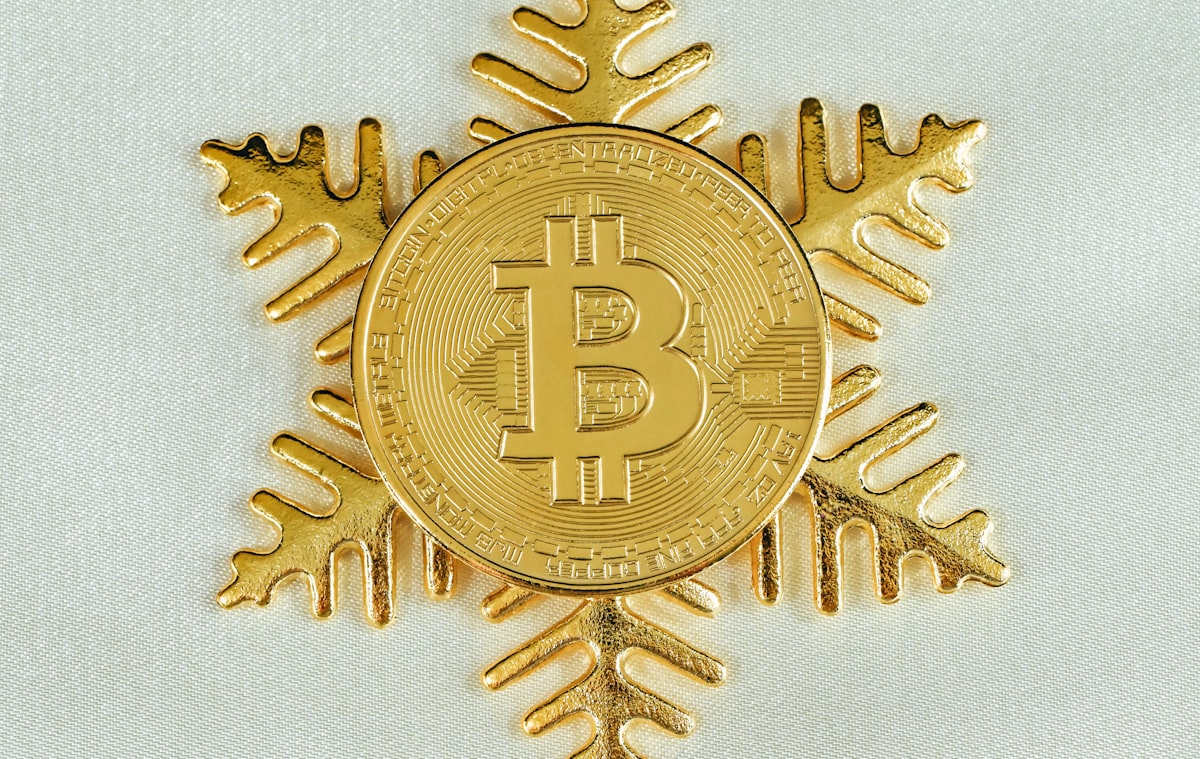I Like Bitcoin, Buy My Fractionally-Reserved Bitcoin
In contrast to the failed history of free fractional reserve banking, as recently as the BlockFi, Celsius, and FTX failures, there is a growing ecosystem of 100% reserve banking and accompanying tools using bitcoin, including cashu, Fedimint, the Lightning Network, and The Liquid Network.

We're used to altcoin salesmen approaching bitcoiners with some version of "I like bitcoin, buy my shitcoin." Perhaps the most dangerous class of altcoins and the one that is likely to wreck the greatest number of bitcoiners in upcoming years is fractionally-reserved bitcoin (FRB).
Some factors that make FRB more dangerous than other altcoin schemes are listed below and further elaborated throughout the rest of this article. Bitcoiners should be aware of these tactics to be able to identify them and ignore or dispel them as needed.
- Bitcoin affinity
- False equivalence with free markets
- Brandolini's Law
- Argumentum ad ignorantiam
- Deceptive language
Bitcoin affinity
FRBs have bitcoin in their name, and the unit of account for these altcoins is bitcoin, though they are merely IOUs denominated in bitcoin where the actual bitcoin needed to meet all outstanding IOUs are not readily available to the issuer. Similar to how USD "depositors" may think the cash corresponding to their IOU balance is available and sitting at the bank, FRB holders may be deceived into thinking the loans they've made to fractionally-reserved bitcoin banks are "deposits" that are fully available on demand, which is, by definition, not the case. Unlike USD, however, no lender of last resort can print the difference, which is ultimately good for bitcoin holders but disastrous for FRB holders, as we experienced with the collapses of BlockFi, Celsius, and FTX.
Opposition to fractional reserve banking is native to bitcoin's history. In one of his early bitcointalk posts, Satoshi notes, Banks must be trusted to hold our money and transfer it electronically, but they lend it out in waves of credit bubbles with barely a fraction in reserve. This isn't to suggest Satoshi was infallible or to appeal to authority in any way. Instead, it is to disprove some FRB proponents that would otherwise have you believe opposing fractional reserve banking is a recent phenomenon attributable to a Rothbardian cult that has taken over bitcoin twitter. Quite the contrary, opposing FRBs is embedded in bitcoin's DNA, and it is the so-called "free banker" cult that aims to hijack the direction of bitcoin with failed ideas of the past.
False equivalence with free markets
Similar to other altcoin proponents, proponents of FRBs may espouse free market ideals. Some of their free-market-driven arguments are intended to guilt and gaslight bitcoiners into believing that opposing their failed idea is equivalent to opposing the ideals of free markets. This is obviously disingenuous as most bitcoiners that oppose altcoins are doing so as part of the free market and simply rejecting products they don't like.
While we don't necessarily need to specify any particular reason to object to a given idea or product – it is a free market, after all – we actually have good reasons to oppose FRB. It is both self-serving and the right thing to do for bitcoiners to vocally and voluntarily disassociate themselves from deceptive and unsustainable products. For one, the existence of FRB would temporarily inflate the money supply. Additionally, we don't need bitcoin's reputation to be tainted in the public eye when FTX clones collapse in the future.
Bitcoiners do a grave disservice to the Cypherpunk movement in dismissing free banking. You do not understand that you are working at cross-purposes, supporting the narrative of the state. OGs like @GeorgeSelgin understand that freedom is the objective.
— Eric Voskuil (@evoskuil) March 28, 2023
It is indeed the FRB proponents that are at odds with the free market when they accuse bitcoiners of being anti-free-market. Instead of accepting what the market is telling them about the inferiority of their product, they are attempting to blame the market for not being open-minded about their historically failed and mathematically-destined-to-fail idea.
Brandolini's Law
Unlike most altcoin proponents, FRB proponents may be highly sophisticated and well-versed in the history of money and banking. Some may even claim to be students of the Austrian School of Economics or at least Austrian-adjacent in their views. Others may be "OGs" in the bitcoin space. In reading or listening to their arguments, you'll likely run into many literary and historical references that can become tiresome to research and refute due to the bullshit asymmetry principle or Brandolini's Law.
None of their sophistry, however, can change the basic fact that a "bank" with X<100% reserves would fail and lead to losses for its customers when customers representing >X% of the claims show up to withdraw their funds. As time approaches infinity, the probability that >X% of the claims request redemption approaches certainty.
Argumentum ad ignorantiam
FRB proponents sometimes counter the mathematical proposition above with historical examples of free fractional reserve banking. In doing so, they ignore the math and handwave it as an issue the market can solve, as if the markets can alter math.
They also handwave over the fact that their examples are historical, as in failed and non-existent today. They treat the historical evidence of spectacular failures as if the evidence supports their case. One example, as Murray Rothbard notes is how "free" Scottish banks suspended specie payment when England did, in 1797, and, like England, maintained that suspension until 1821. Free banks are not supposed to be able to, or want to, suspend specie payment, thereby violating the property rights of their depositors and noteholders, while they themselves are permitted to continue in business and force payment upon their debtors.
FRB proponents argue that we simply have not had the right environment for fractional-reserve banks to flourish. This is an appeal to ignorance akin to how communists argue we have never witnessed true communism when presented with the evidence of historical failures.
In contrast to the failed history of free fractional reserve banking, as recently as the BlockFi, Celsius, and FTX failures, there is a growing ecosystem of 100% reserve banking and accompanying tools using bitcoin, including cashu, Fedimint, The Lightning Network, and The Liquid Network.
That's why you have only fractional reserve banks in the corrupt fiat cartel banking system. And that's why you have fractional reserve banks constantly get destroyed in an honest free monetary market like bitcoin, where only full reserve banks survive.
— Saifedean Ammous (@saifedean) March 28, 2023
The historical record, particularly with bitcoin, favors 100% reserve banking. The projects mentioned above have a path to scaling, while no FRB solution has demonstrated the ability to survive, let alone scale beyond flawed thought exercises.
Deceptive language
Of note with FRB proponents is the language used to describe their product. The words we use in bitcoin matter, as @dergigi covers here.
Free banking
FRB proponents have laid claim to the practice of "free banking," whereas 100% reservists are typically referred to as "Rothbardians" – not exactly a household name and much less bald eagle, apple pie, and fourth of July-sounding than "free banking."
Bitcoiners need to reclaim the title for free banking based on free banks that are viable and exist today (e.g., cashu, liquid) and relegate FRB proponents to adopt an obscure non-household name for themselves. One option is "Selginite" if the good doctor wouldn't mind.
No: free banking is just what it says; fractional reserves are the norm whenever free trade in money has prevailed, as it has at times Scotland, Sweden, Switzerland, Canada, South Africa, China, Chile, Australia, Ireland, Italy, France… . To deny it is to be willfully blind.
— George Selgin (@GeorgeSelgin) March 29, 2023
Deposits
Another trick the FRB proponents play with words is how they name customer loans to the bank "deposits."
This, of course, has the potential to cut to the heart of how "free" fractional-reserve banking actually is since the contract between the depositors and the bank cannot be considered voluntary if an overwhelming majority of the customers in that contract do not understand the nature of the relationship. This may be obvious for economists, professionals in the financial sector, or bitcoiners that have taken up the study of these matters. But, one needs only to visit a local coffee shop or another establishment to understand the general public's understanding is far from it.
Absolutely correct.
— Conza (@Conza) March 26, 2023
"74% think they own their money, when of course they do not, the bank does."
Doesn't look anything like acceptance if the pro FRB 🤡's were right. pic.twitter.com/a2dNAFLK5p
Conclusion
In the words of Caitlin Long as she warned SBF prior to the collapse of FTX, a fool and their leveraged bitcoin are soon parted.
"A fool and his leveraged #bitcoin are soon parted"
— Documenting ₿itcoin 📄 (@DocumentingBTC) November 17, 2022
— @CaitlinLong_ explained to @SBF_FTX a year ago pic.twitter.com/8EYsrvvsW1
FRB are simply leveraged bitcoin wrapped in jargon and, to date, deceptive language. Fractional reserve bitcoin banks are mathematically destined to fail. While their existence in the market at any point prior to their failure wouldn't annul this mathematical certainty, they have also failed in the market each time they have been attempted. On the other hand, full reserve bitcoin banks are alive and well.
In principle, people have a right to experiment with FRB, just as they have a right to experiment with altcoins. Similarly, the voluntary and vocal opposition of bitcoiners towards FRB is equally, if not more, justified as part of the same free market. Nevertheless, bitcoiners would do well to avoid and prevent FRB as much as possible to protect themselves and others against financial loss and protect bitcoin's reputation in the eyes of the public that may incorrectly associate FRB with bitcoin.
Additional reading and viewing:
- The Myth of Free Banking in Scotland, Murray Rothbard
- The Great Fractional Reserve/Freebanking Debate, Stephan Kinsella
- Rothbardians vs. "Free Bankers", Robert Murphy
- Does Fractional Reserve Banking Endanger the Economy, A Debate
